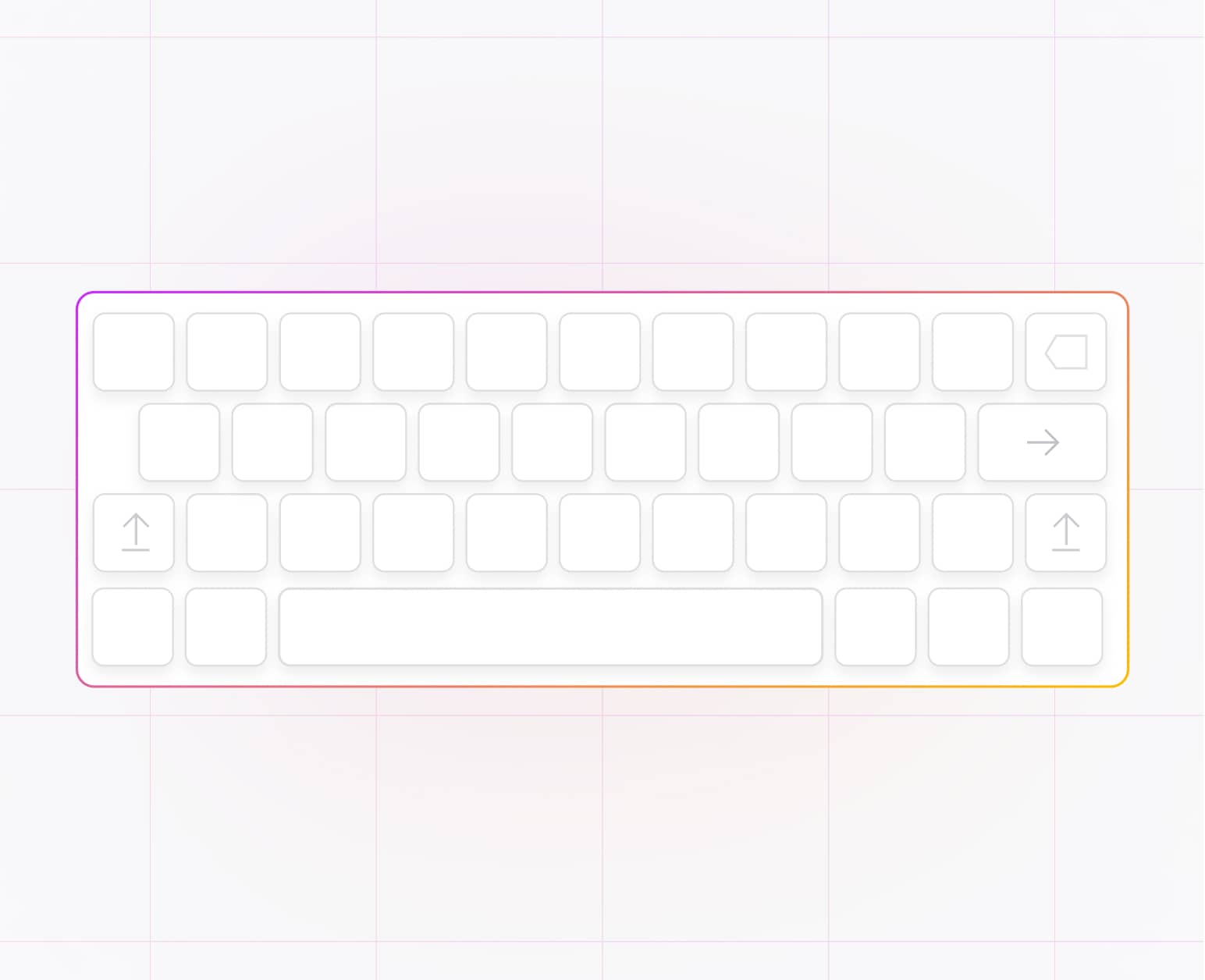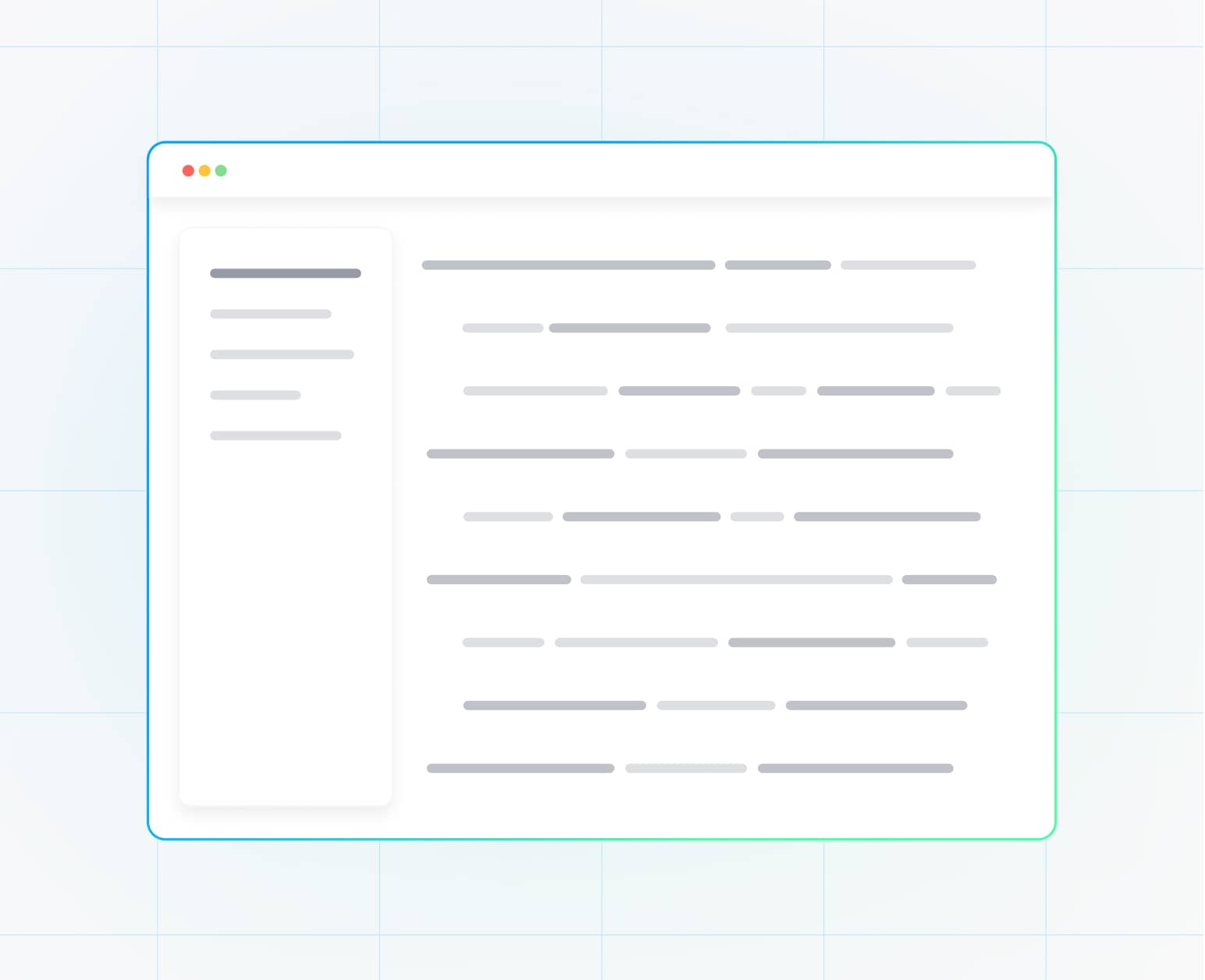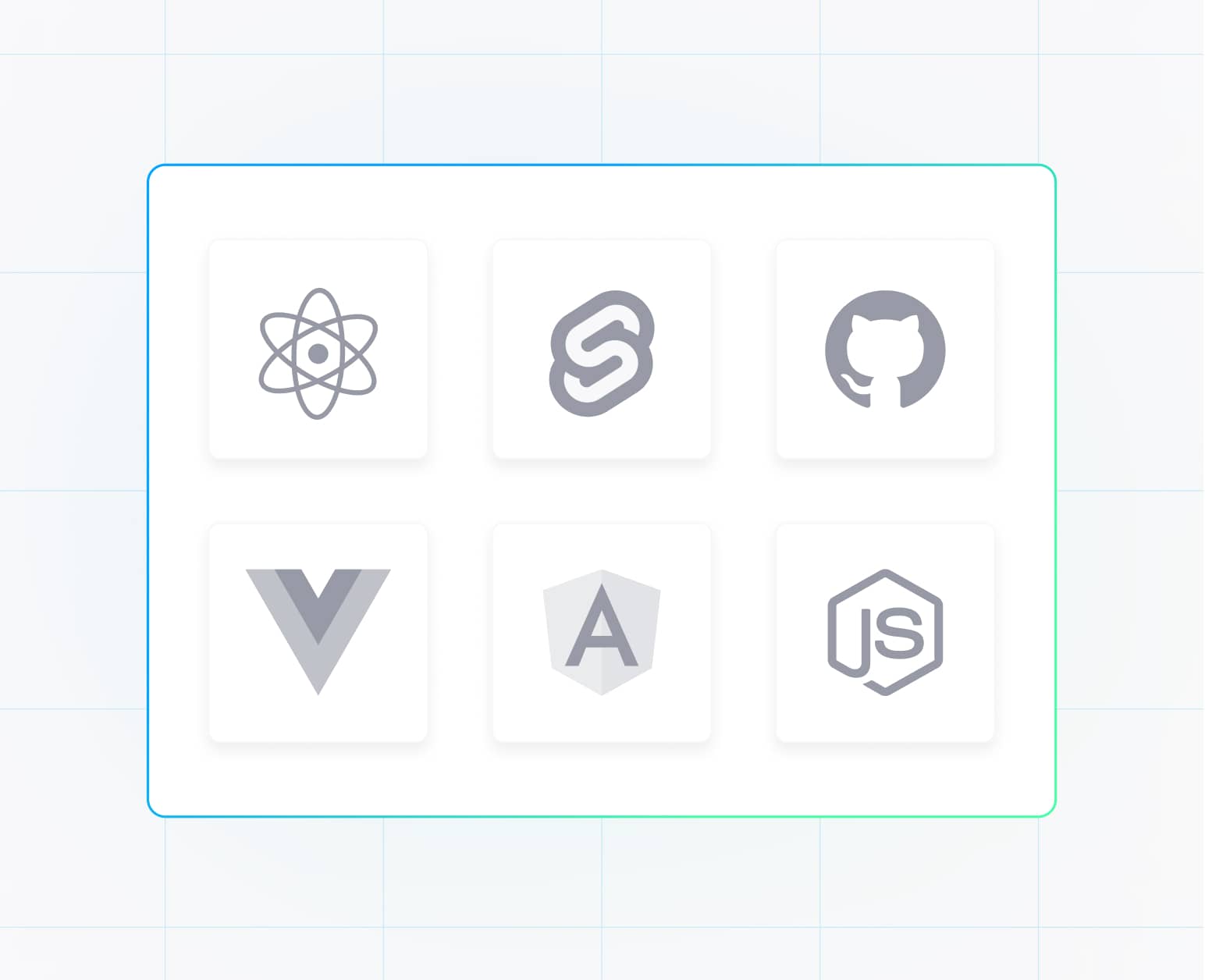
10 Game-Changing Web Development Libraries You Need to Know in 2025

10 Game-Changing Web Development Libraries You Need to Know in 2025
The web development landscape in 2025 has evolved dramatically with AI integration, edge computing, and revolutionary frontend frameworks reshaping how we build modern applications. While React, Angular, and Vue remain foundational, a new generation of specialized libraries is emerging to solve complex challenges with unprecedented efficiency.
This comprehensive guide explores the most impactful web development libraries that are transforming the industry in 2025—tools that can dramatically accelerate your development workflow, enhance application performance, and future-proof your tech stack.
Why Modern Libraries Matter More Than Ever
Before diving into specific tools, it's crucial to understand why choosing the right libraries has become more critical in 2025:
- AI-First Development: 73% of new web applications now integrate AI features, requiring specialized libraries
- Performance Expectations: Users expect sub-second load times and instant interactions
- Edge Computing: Applications now run closer to users for ultra-low latency
- Developer Experience: Modern libraries reduce boilerplate code by up to 80%
- Security Standards: Newer libraries address modern security threats that older frameworks can't handle
1. Tanstack Query (React Query v5) - The Data Fetching Revolution
What It Does
Tanstack Query has become the de facto standard for server state management in React applications, replacing complex Redux setups with intuitive, declarative data fetching.
Why It's Game-Changing in 2025
// Before: Complex Redux setup with 100+ lines of boilerplate
// After: Simple, powerful data fetching
import { useQuery, useMutation } from '@tanstack/react-query';
function ClientDashboard() {
const { data: clients, isLoading, error } = useQuery({
queryKey: ['clients'],
queryFn: async () => {
const response = await fetch('/api/clients');
return response.json();
},
staleTime: 5 * 60 * 1000, // Cache for 5 minutes
refetchOnWindowFocus: true
});
const updateClient = useMutation({
mutationFn: (clientData) =>
fetch(`/api/clients/${clientData.id}`, {
method: 'PUT',
body: JSON.stringify(clientData)
}),
onSuccess: () => {
queryClient.invalidateQueries(['clients']); // Auto-refresh
}
});
if (isLoading) return Key Benefits
- Automatic Caching: Intelligent cache management reduces API calls by 70%
- Background Refetching: Data stays fresh without manual intervention
- Optimistic Updates: Instant UI feedback before server confirmation
- Devtools: Visual debugging for query states and cache
Real-World Impact
A Swiss e-commerce company reduced their API calls by 68% and improved page load times by 2.3 seconds after implementing Tanstack Query.
Use Cases: Any application with complex data fetching - dashboards, admin panels, e-commerce platforms
2. Drizzle ORM - TypeScript-First Database Library
What It Does
Drizzle ORM is revolutionizing database interactions with full TypeScript support, SQL-like syntax, and zero runtime overhead.
Why It's Superior to Traditional ORMs
// Define your schema with full type safety
import { pgTable, serial, text, timestamp } from 'drizzle-orm/pg-core';
export const clients = pgTable('clients', {
id: serial('id').primaryKey(),
companyName: text('company_name').notNull(),
industry: text('industry'),
createdAt: timestamp('created_at').defaultNow()
});
// Query with full IntelliSense and type checking
import { db } from './db';
import { clients } from './schema';
import { eq, like } from 'drizzle-orm';
// Simple queries feel like SQL
const techClients = await db
.select()
.from(clients)
.where(like(clients.industry, '%technology%'));
// Complex joins with full type safety
const clientsWithProjects = await db
.select({
clientName: clients.companyName,
projectName: projects.name,
status: projects.status
})
.from(clients)
.leftJoin(projects, eq(clients.id, projects.clientId))
.where(eq(projects.status, 'active'));Why Developers Love It
- Raw SQL Performance: No runtime overhead or query abstraction penalties
- Perfect TypeScript Integration: Catches database errors at compile time
- Lightweight: 12KB vs Prisma's 145KB bundle size
- Migration System: Simple, version-controlled schema migrations
Best For: TypeScript projects, performance-critical applications, microservices architecture
3. Shadcn/ui - The Component Library That Isn't
What Makes It Different
Unlike traditional component libraries, Shadcn/ui doesn't add dependencies. Instead, it copies beautifully designed, accessible components directly into your project that you own and can customize.
The Revolutionary Approach
# Traditional library: Add dependency (increases bundle size)
npm install @mui/material
# Shadcn approach: Add only what you need
npx shadcn-ui@latest add button
npx shadcn-ui@latest add dialog
npx shadcn-ui@latest add formWhy It's Winning in 2025
- Zero Vendor Lock-in: You own the code, modify it freely
- Perfect Accessibility: ARIA-compliant, keyboard navigation built-in
- Tailwind Integration: Seamless styling with utility classes
- Tree-Shaking: Only includes components you actually use
Bundle Size Comparison
- Material-UI: 347KB minified
- Ant Design: 1.2MB minified
- Shadcn/ui: 8-45KB (only what you use)
Perfect For: Startups, custom design systems, performance-sensitive applications
4. Hono - The Ultrafast Web Framework
What It Does
Hono is a lightweight, ultrafast web framework that runs on any JavaScript runtime: Node.js, Deno, Bun, Cloudflare Workers, and more.
Speed Comparison
Benchmarks (requests per second):
- Hono: 394,000 req/s
- Express: 28,000 req/s
- Fastify: 62,000 req/sUniversal Runtime Support
import { Hono } from 'hono';
import { cors } from 'hono/cors';
import { jwt } from 'hono/jwt';
const app = new Hono();
// Middleware
app.use('/*', cors());
app.use('/api/*', jwt({ secret: process.env.JWT_SECRET }));
// Routes with full type safety
app.get('/api/clients', async (c) => {
const clients = await db.select().from(clientsTable);
return c.json(clients);
});
app.post('/api/clients', async (c) => {
const body = await c.req.json();
const newClient = await db.insert(clientsTable).values(body).returning();
return c.json(newClient, 201);
});
// Works on Cloudflare Workers, Vercel Edge, AWS Lambda, anywhere!
export default app;Why Choose Hono in 2025
- Edge-First: Optimized for edge computing and serverless
- Type-Safe: Full TypeScript support with RPC capabilities
- Minimal: Only 13KB, no dependencies
- Middleware Ecosystem: JWT, CORS, compression, logging built-in
Best For: Serverless applications, edge computing, microservices, AI APIs
5. Zod - TypeScript Schema Validation
What It Solves
Runtime validation that maintains perfect TypeScript type inference, eliminating the gap between compile-time and runtime types.
The Problem It Solves
// After: Declarative validation with automatic types
import { z } from 'zod';
const ClientSchema = z.object({
companyName: z.string().min(2).max(100),
email: z.string().email(),
industry: z.string().optional(),
employeeCount: z.number().int().positive(),
website: z.string().url().optional(),
contactPerson: z.object({
name: z.string(),
role: z.string(),
phone: z.string().regex(/^\+?[1-9]\d{1,14}$/)
})
});
// TypeScript type automatically inferred!
type Client = z.infer;
// Validation in one line
function createClient(data: unknown) {
const validData = ClientSchema.parse(data); // Throws if invalid
// validData is now fully typed as Client
return db.insert(clients).values(validData);
} Integration with Form Libraries
import { useForm } from 'react-hook-form';
import { zodResolver } from '@hookform/resolvers/zod';
function ClientForm() {
const { register, handleSubmit, formState: { errors } } = useForm({
resolver: zodResolver(ClientSchema)
});
const onSubmit = (data: Client) => {
// data is fully validated and typed
createClient(data);
};
return (
);
}Use Cases: Form validation, API request/response validation, configuration parsing
6. LangChain.js - AI Application Framework
What It Enables
Build production-ready AI applications with structured tools for prompt management, chains, agents, and memory.
Building an AI-Powered Feature
import { ChatOpenAI } from "langchain/chat_models/openai";
import { PromptTemplate } from "langchain/prompts";
import { LLMChain } from "langchain/chains";
import { BufferMemory } from "langchain/memory";
// Create an AI assistant that remembers context
const chatModel = new ChatOpenAI({
modelName: "gpt-4",
temperature: 0.7
});
const memory = new BufferMemory({
memoryKey: "chat_history",
returnMessages: true
});
const promptTemplate = PromptTemplate.fromTemplate(`
You are a technical consultant helping clients choose technology stacks.
Previous conversation:
{chat_history}
Client question: {question}
Provide a detailed, actionable recommendation:
`);
const chain = new LLMChain({
llm: chatModel,
prompt: promptTemplate,
memory: memory
});Best For: AI chatbots, content generation, intelligent automation, document analysis
7. Vite 5 - Next-Generation Build Tool
Why Vite is Winning in 2025
Vite has become the build tool of choice, replacing Webpack in most new projects with dramatically faster development experience.
Speed Comparison
Development Server Start Time:
- Vite 5: 0.3 seconds
- Webpack 5: 8.2 seconds
- Create React App: 12.4 seconds
Hot Module Replacement (HMR):
- Vite 5: <50ms
- Webpack 5: 200-600msKey Benefits
- Instant Server Start: No bundling in development
- Lightning HMR: See changes in < 50ms
- Optimized Production Builds: Automatic code splitting
- Modern JavaScript: Native ES modules support
Migration Path: Easily migrate from Create React App or Webpack
8. Playwright - Modern End-to-End Testing
Why It's Superior to Selenium
Playwright has become the gold standard for E2E testing with cross-browser support, auto-waiting, and powerful debugging tools.
Writing Reliable Tests
import { test, expect } from '@playwright/test';
test.describe('Client Management', () => {
test('should create and display new client', async ({ page }) => {
// Navigate to dashboard
await page.goto('http://localhost:3000/dashboard');
// Click add client button
await page.click('button:has-text("Add New Client")');
// Fill form (auto-waits for elements)
await page.fill('input[name="companyName"]', 'Acme Corp');
await page.fill('input[name="email"]', 'contact@acme.com');
await page.selectOption('select[name="industry"]', 'Technology');
// Submit form
await page.click('button[type="submit"]');
// Verify success
await expect(page.locator('text=Client created successfully')).toBeVisible();
await expect(page.locator('text=Acme Corp')).toBeVisible();
});
});Best For: Critical user journeys, regression testing, cross-browser compatibility
9. tRPC - End-to-End Type Safety
What It Solves
tRPC eliminates the gap between frontend and backend by sharing TypeScript types automatically, removing the need for manual API documentation and reducing bugs by 60%.
Building Type-Safe APIs
// backend/router.ts - Define your API
import { initTRPC } from '@trpc/server';
import { z } from 'zod';
const t = initTRPC.create();
export const appRouter = t.router({
// List clients with filtering
listClients: t.procedure
.input(z.object({
industry: z.string().optional(),
limit: z.number().min(1).max(100).default(10)
}))
.query(async ({ input }) => {
const clients = await db.select()
.from(clientsTable)
.where(input.industry ? eq(clientsTable.industry, input.industry) : undefined)
.limit(input.limit);
return clients;
})
});Why It's Revolutionary
- Zero Code Generation: No build step required
- Instant Refactoring: Rename API endpoints and frontend updates automatically
- Type-Safe Errors: Handle errors with full type information
- Automatic Documentation: Your types ARE your documentation
Perfect For: Full-stack TypeScript projects, internal APIs, rapid development
10. Turborepo - Monorepo Management
What It Solves
Managing multiple applications and packages in a single repository with optimized builds and intelligent caching.
Performance Benefits
# Traditional monorepo build
npm run build # 8 minutes
# Turborepo with caching
turbo build # First run: 8 minutes
turbo build # Subsequent runs: 2 seconds (cached!)Key Features
- Intelligent Caching: Never rebuild unchanged code
- Parallel Execution: Run tasks across packages simultaneously
- Remote Caching: Share cache across team and CI/CD
- Dependency Awareness: Automatically builds in correct order
Best For: Companies with multiple applications, design systems, platform development
How to Choose the Right Libraries for Your Project
Decision Framework
1. Assess Your Needs
- Project Size: Startup MVP vs Enterprise application
- Team Expertise: Learning curve considerations
- Performance Requirements: Real-time vs standard applications
- Scalability Goals: Current users vs 5-year projection
2. Consider Integration
- Do libraries work well together?
- Are there conflicting philosophies?
- What's the migration path from existing code?
3. Evaluate Long-Term Support
- Active development and community
- Corporate backing (Google, Meta, Vercel)
- Clear versioning and upgrade paths
- Security update frequency
Recommended Stack Combinations for 2025
For Startups (Speed to Market)
- Frontend: React + Vite + Shadcn/ui
- Backend: Hono + Drizzle ORM
- Deployment: Vercel/Cloudflare
- Testing: Playwright
For Enterprise (Reliability & Scale)
- Frontend: React + Next.js + Tanstack Query
- Backend: tRPC + Drizzle ORM
- Monorepo: Turborepo
- Testing: Playwright + Vitest
For AI-First Applications
- AI Layer: LangChain.js
- Validation: Zod
- Backend: Hono + Drizzle
- Frontend: React + Tanstack Query
Real-World Success Story
Client Case Study: E-commerce Platform Modernization
Challenge: Legacy e-commerce platform with slow load times, difficult maintenance, and scaling issues.
Solution: Implemented modern library stack
- Migrated from Redux to Tanstack Query
- Replaced REST with tRPC
- Added Playwright for E2E testing
- Implemented Turborepo for monorepo management
Results After 6 Months:
- ✅ 70% faster page loads: 6.2s → 1.8s
- ✅ 60% reduction in bugs: Better type safety
- ✅ 40% faster development: Improved DX
- ✅ 95% reduction in build time: Turborepo caching
- ✅ $120K annual savings: Reduced infrastructure costs
Common Pitfalls to Avoid
1. Library Overload
Problem: Adding too many libraries creates maintenance burden
Solution: Start with 2-3 core libraries, expand gradually
2. Chasing Trends
Problem: Constantly switching to newest libraries
Solution: Choose stable, well-supported tools with proven track records
3. Ignoring Team Capacity
Problem: Overwhelming team with new technology
Solution: Provide training and documentation, migrate incrementally
Conclusion: Building for the Future
The web development landscape in 2025 offers unprecedented tools for building fast, reliable, and intelligent applications. The libraries highlighted in this guide represent the cutting edge of modern development—tools that have proven their value in production environments while pushing the industry forward.
Key Takeaways:
- Type Safety is Non-Negotiable: Tools like Zod, tRPC, and Drizzle ORM eliminate entire categories of bugs
- Performance Matters More Than Ever: Users expect instant interactions and sub-second load times
- Developer Experience Drives Productivity: Modern libraries reduce boilerplate by 60-80%
- AI Integration is Becoming Standard: LangChain.js and similar tools make AI features accessible
- Edge Computing is Here: Hono and serverless-first libraries optimize for modern infrastructure
Your Next Steps
- Audit your current stack: Identify areas causing the most friction
- Choose one library to pilot: Start with the biggest pain point
- Measure the impact: Track development speed and application performance
- Share with your team: Build momentum through successful implementations
- Iterate and expand: Gradually modernize your entire stack
Get Expert Help with Modern Web Development
At Microservice Solutions GmbH, we specialize in helping companies modernize their technology stacks with cutting-edge libraries and frameworks. Our team has hands-on experience implementing these tools in production environments for businesses across Switzerland and Europe.
Our Services:
- Technology Stack Assessment: Evaluate your current architecture and identify optimization opportunities
- Modern Library Integration: Seamlessly adopt new technologies without disrupting existing operations
- Team Training: Comprehensive workshops on modern development practices
- Custom Development: Build new applications with state-of-the-art tools from day one
- Migration Services: Safely move from legacy systems to modern architectures
Contact us today for a complimentary technology stack consultation and discover how modern libraries can transform your development velocity and application performance.

.png)




